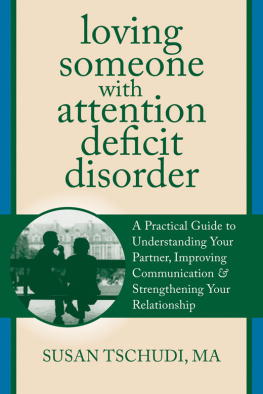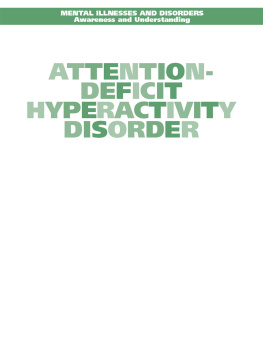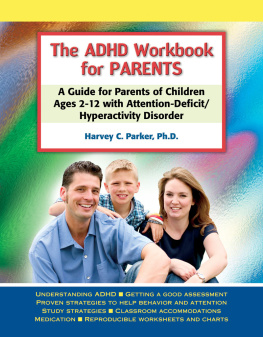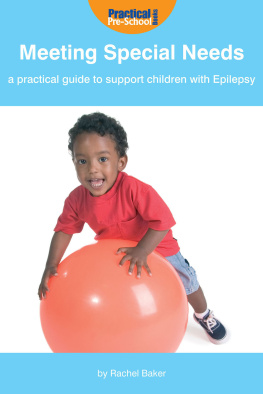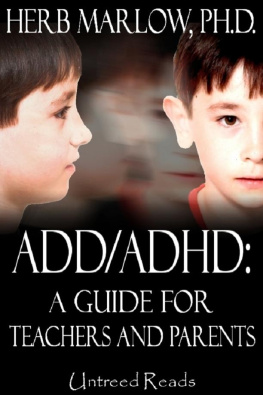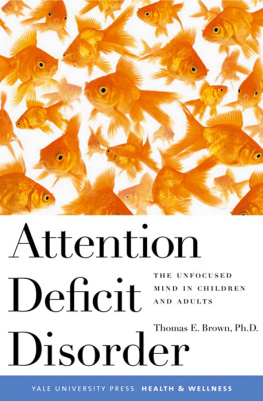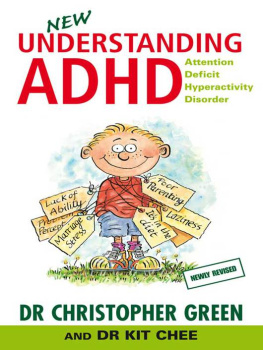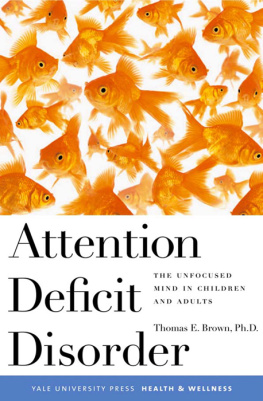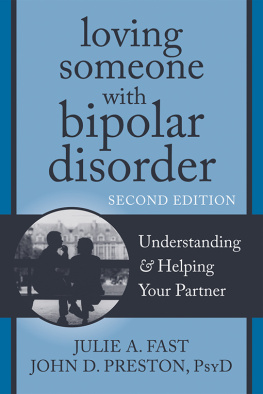Susan Tschudi, MA, is a licensed marriage and family therapist in private practice in Westlake Village, CA, and adjunct professor of psychology at Pepperdine University. As a relationship expert, she specializes in helping couples achieve marital success. She also speaks both nationally and internationally on the subject of attention deficit disorder and relationships. Visit www.lovingsomeonewithadd.com for more information.

Romantic partners of adults with ADHD need good informationthey really need it. Fortunately, Tschudis new book, Loving Someone with Attention Deficit Disorder, is loaded with good information. Not only is she herself the romantic partner of someone with ADD, she is also a therapist, and that clinical wisdom shines through. If you are the romantic partner of someone with ADD, you owe it to yourself to read this book.
Ari Tuckman, PsyD, MBA, author of Understand Your Brain, Get More Done; More Attention, Less Deficit; and Integrative Treatment for Adult ADHD
Loving Someone with Attention Deficit Disorder takes the reader through the journey of recognizing and dealing with the havoc created by ADD. This book can benefit both the non-ADD individual as well as the partner with ADD. It is illustrative of the difficulties that I find in my patient population and can provide a source of knowledge, facts, and practical tools for rebuilding and enhancing a couples relationship. I also highly recommend it for clinicians working in the field of mental health.
Ed S. Jesalva, MD, experienced psychiatrist and consultant
Susan Tschudi has written a helpful book from the perspective of a non-ADD spouse. Loving Someone with ADD not only provides facts and refutes myths about ADD, but also gives hope to spouses and partners. She emphasizes important topics such as addiction, conflict resolution, and self-care. I recommend this book to couples in relationships wherein either one or both of the partners are affected by ADD.
Stephanie Moulton Sarkis, PhD, author of 10 Simple Solutions to Adult ADD, Making the Grade with ADD, ADD and Your Money, and Adult ADD: A Guide for the Newly Diagnosed
Loving Someone with Attention Deficit Disorder is a wonderful and needed tool for couples. First, Tschudi expands our understanding of the impact of ADHD on individuals and relationships. She then offers practical and specific coping strategies to empower couples with the skills needed to manage the challenges of ADHD together.
Dennis Lowe, PhD, professor of psychology at Pepperdine University and Emily Scott-Lowe, PhD, director of social work at Pepperdine University
ADD and ADHD have damaged many relationships. Partners of people with this complicated issue sometimes take it personally or dont understand that their mate may not be in control of his or her own thought processes. Tschudis book will help couples make sense of this misunderstood dilemma and assist them in making healthy choices about their own relationships.
Barton Goldsmith, PhD, author of Emotional Fitness for Couples
This book will be immensely helpful if you are married to someone with ADHD. It will help you find and keep your balance. It will help you understand your partner and not act like a frustrated parent. Tschudi has written a wise, practical, and compassionate book.
William Doherty, PhD, professor of family social science at the University of Minnesota and author of Take Back Your Marriage

Publishers Note
This publication is designed to provide accurate and authoritative information in regard to the subject matter covered. It is sold with the understanding that the publisher is not engaged in rendering psychological, financial, legal, or other professional services. If expert assistance or counseling is needed, the services of a competent professional should be sought.
Distributed in Canada by Raincoast Books
Copyright 2012 by Susan Tschudi
New Harbinger Publications, Inc.
5674 Shattuck Avenue
Oakland, CA 94609
www.newharbinger.com
Cover design by Amy Shoup
Text design by Tracy Marie Carlson
Acquired by Jess OBrien
Edited by Nelda Street
All Rights Reserved
ePub ISBN: 9781608822300
Library of Congress Cataloging-in-Publication Data on file with publisher
Dedicated to C. T., my favorite person with ADHD.
Acknowledgments
I would like to thank my husband, Craig, and my kids, Jordan, Randy, Kendall, and Tyler, for all of their encouragement, support, and understanding.
Special appreciation goes to the kind people at New Harbinger Publications, who gave me the opportunity to share this information.
This book could not have been written without all of the non-ADHD partners who have honestly and courageously shared their heartaches and triumphs with me over the years. Thank you.
Introduction
In my counseling practice as a licensed marriage and family therapist, I work with couples who are trying to restore broken aspects of their relationships. While not all of the couples have attention deficit disorder (ADHD) as an issue in their relationships, a surprising number of them do. Sometimes they already know it, and other times I pick up on it and assist the couple through the diagnostic process. I have discovered that, while it is important to help the partner with ADHD to manage symptoms, it is equally important to address the frustrations and problems that the non-ADHD partner experiences; in fact, sometimes the non-ADHD partner needs counseling more than the ADHD partner does. Theres no doubt that it can be difficult to be in a relationship with someone who has ADHD.
Although it is not unusual for two people with ADHD to find each other and establish a relationship, the vast majority of people with ADHD end up with a partner who does not have the disorder. I assume that you are reading this book because you are the partner who doesnt have ADHD. You probably do not struggle with distractibility, impulsiveness, inattention, or restlessness to the degree that it impairs your daily functioning, but your partner probably does. You may be well versed in the particulars involved with ADHD, or you may not know very much at all about it. Your partner may have received a formal diagnosis, or you may only suspect that ADHD is part of the problem. Regardless of where you and your partner are in the process of understanding ADHD, I trust that this book will be helpful to you in your relational journey.
I Know What You Are Going Through
On a personal level, I have come to know and understand ADHD well, but this knowledge came about by accident. When I was in graduate school, the only discussion of ADHD occurred in a class that focused on evaluating and conducting therapy with children and adolescents. I spent the required amount of time learning the symptoms and the criteria for diagnosis, but since I knew that child therapy was not going to be my professional focus, I mentally filed the information away and considered it somewhat irrelevant as a diagnostic issue for adults.
After completing my education, I began my clinical training in earnest, and during one of my first field placements in Los Angeles, I found myself counseling a very creative population. Most of my clients wanted to work, or did indeed work, within the entertainment industry as actors, musicians, directors, producers, lighting experts, set designers, and so on. Although I was unaware of it at the time, many people with ADHD are very creative, and I began to discover that many of my intensely creative clients were exhibiting some of the same symptoms of ADHD that I had studied in my graduate-school class about children and adolescents. Wrapped up and firmly entrenched in many of my clients challenges and failuresincluding past academic pursuits, work-related endeavors, and especially interpersonal relationshipswere many of the symptoms attached to ADHD. So I searched for as much information as possible on adult ADHD, and attended whatever seminars and workshops on the subject that were available at the time to help me understand and work with this population.

